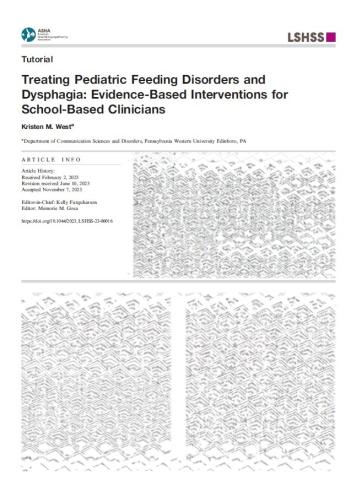Title
Displaying results 21 - 25 of 25
Author: Lindeman, Karen W.
Institution: Edinboro University of Pennsylvania
Department: Early Childhood and Reading
Author: Jabot, Michael
Author: Berkley, Mira T.
Publisher: Emerald Insight
2014
Evidence-Based Interventions for School-Based Clinicians.
Author: West, Kristen
Publisher: American Speech-Language-Hearing Association
2024
Author: Lindeman, Karen W.
Institution: Edinboro University of Pennsylvania
Department: Early childhood education
Author: Sullivan, Ashley
Institution: Penn State Erie the Behrend College
Author: Newman, Janelle
Institution: Edinboro University of Pennsylvania
Department: Early childhood education
Author: Cole, Heather
Institution: West Virginia University
Author: Shannon, Tara
Institution: Erie Public School District
Publisher: Routledge
2022
Author: Lindeman, Karen W.
Institution: Edinboro University of Pennsylvania
Department: Early Childhood and Reading
Author: Anderson, Elizabeth K.
Institution: Binghamton University, State University of New York
2015
Author: Carello, Janice
Institution: Pennsylvania Western University, Edinboro Campus
Department: Department of Social Work
Author: Thompson, Phyllis
Institution: East Tennessee State University
Publisher: Palgrave MacMillan
2023




